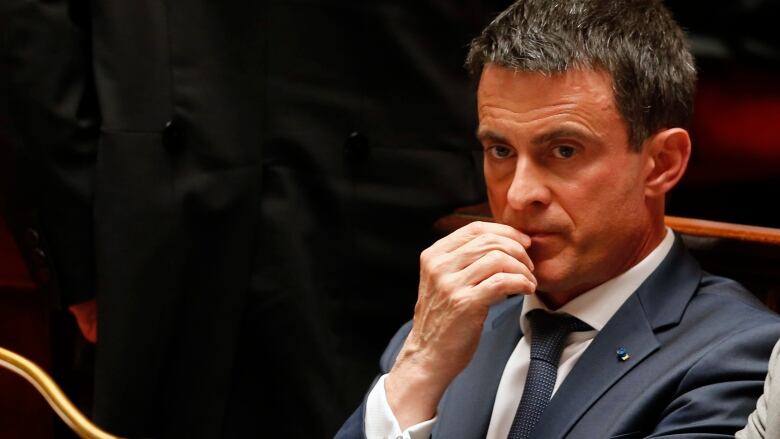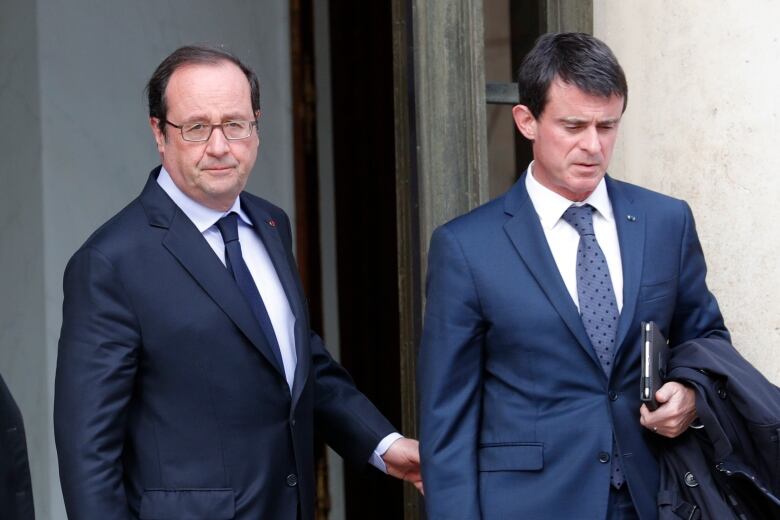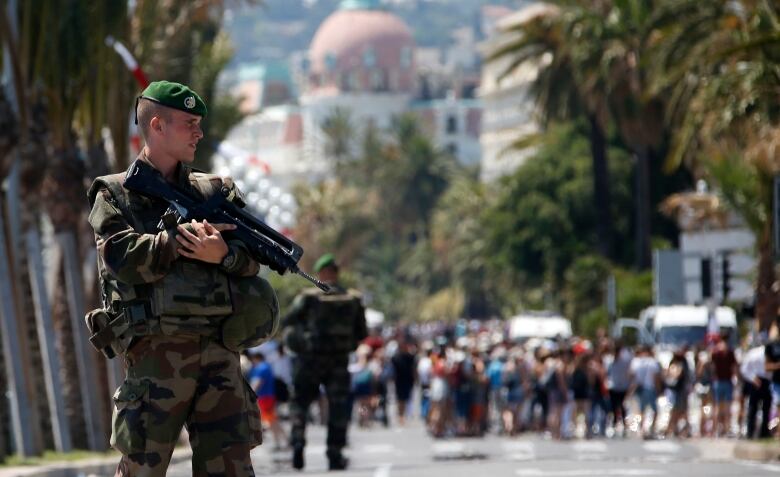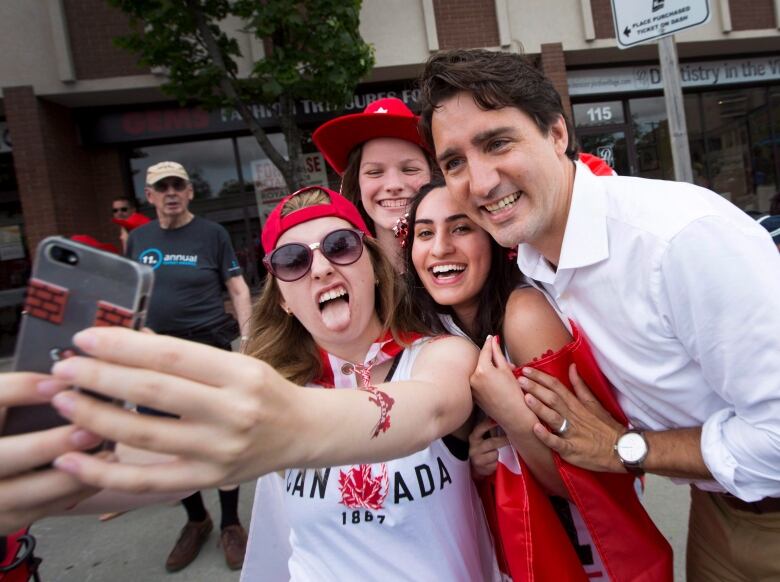France's 'grave' PM to pay Trudeau an official visit
Manuel Valls set to talk trade, climate, but his top priority back home is immigration and assimilation

Manuel Valls wants to rehabilitate France's republican promise. You know the one libert, galit, fraternit.
No small feat for a country now so divided, and yet, nothing less for the French prime minister who clearly has ambitions beyond his present tenure.
Valls lands in Ottawa this afternoon for his first official visit to Canada.
Apart from the usual pomp and protocol, trade will be the big topic on the table during the three-day visit. Specifically, the Comprehensive Economic andTrade Agreement (CETA) between Canada and the EU, which Prime Minister Justin Trudeau is set to ratify later this month in Brussels.
Climate change, language and opportunities for youth an increasingly important issue for the French who, like much of Europe, are suffering staggering unemployment rates are also expected to be discussed.
But the topic for which Valls is perhaps best known and most different from Trudeau is immigration and assimilation.
Raphalle Bacqu, senior correspondent with French newspaper Le Monde, says "itwould be interesting if theytalked about integration."
If they do, it will likely be behind closed doors, and it may be the least cordial of their exchanges since the divide between Valls and Trudeau is vast.
France's Top Cop
Valls has been prime minister of France since March 2014. President Franois Hollande appointed him after his Socialists got slammed by the right and far right in municipal elections. Valls was to be an antidote.

"People trusted him," Bacqu says. "But popularity doesn't quite apply to him."
"He's quite stiff, dry, even cutting. He gets angry. He can be authoritarian. He's often been compared to [former president Nicolas] Sarkozy, in style at least. In fact, Sarkozy tried to woo him to the right to join his government in 2007."
He didn't go, but Sarkozy wasn't the first to think Valls could be swayed, long perceived as something of an unlikely Socialist.
An unlikely Socialist?
"It's an old treason trial," Valls said in an April interview in Libration. "I've been answering this question for over 30 years."
Valls began his political career as mayor of vry, a suburb south of Paris where he became well acquainted with much of what beleaguers his country today.
"It's an incredibly diverse place," Bacqu says. "There's a mosque and a Buddhist temple, all sorts of communities that live relatively well together. But more recently, a handful have been radicalized and become jihadis. And there's poverty. It's a place that concentrates all the problems affecting France, even Europe today."
"Valls' politics were shaped there. He believes in a kind of socialism that's realistic about government and economics, and at Valls' insistence, about security. He believed the poor were on the front lines of security issues."
But within months of his taking office, the whole country found itself on the front lines and security soon becameparamount.
'France is at war'
"At Charlie Hebdo, it was editorialists and cartoonists that were attacked, at Hyper CacherFrench Jews, at the Bataclan it was our youth, and in Nice, the general public," Bacqu says of the series ofattacks that killed more than 200 in France.

By his own admission, Valls, too, has changed since 2015. "I'll never be the same. I've become quite grave, concentrated on what's essential," he said in the Libration interview.
Indeed, he's become increasingly hawkish. He repeatedly declared that "France is at war," and last summer, he sided with the mayors who banned the burkini, labelling the swimwear a "provocation."
I'll never be the same. I've become quite grave, concentrated on what's essential.- French Prime Minister Manuel Valls
Then, in September, he got into a war of words with the New York Times over a feature profiling French Muslim women.
He felt compelled to respond because "this article does not explain what the republican principles are: liberty, equality, fraternity, and the secularism of the French."
"France ... different from other countries, does not see itself as a juxtaposition of communities with each having their autonomous process ... The French identity is a bond to share the same destiny,"he wrote.
It is in this respect, in matters of assimilation and identity, that Valls has perhaps changed the most, returning to a very traditional republican idea about integration whereby all other attachments are forfeited to be French.
A shared destiny
"He's the child of immigrants. He chose to become a French citizen. But, yes, he's become more militant about French secularism, about the need to assimilate," Le Monde'sBacqu says. "It's a very French concept, and one that I think is the source of so many of our problems today."
Valls may benefit a bit back home from being seen with Trudeau. "We're watching what's happening in Canada, not every three minutes, but Trudeau's popular here," Bacqu says. "He's young, new showing up next to him will make him look more modern."

"He's too divisive. He's seen as too far to the right to unite the left, and too far left for the right," Bacqu says.
"And, anyhow, as far as the presidential elections go, he's stuck. He has to stand by Hollande. But otherwise he would have run. It's not like he doesn't want to."












_(720p).jpg)


 OFFICIAL HD MUSIC VIDEO.jpg)
.jpg)



























































































